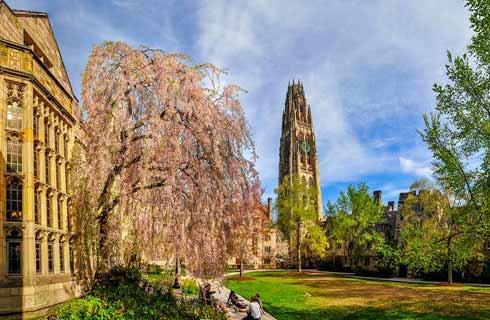
学历文凭
Bachelor Degree

专业院系
法医学

开学时间

课程时长

课程学费

国际学生入学条件
First Time Freshmen with a MATH ACT of 22 or a MATH SAT of 540 or with a 3.75 cumulative high school GPA are admitted to the major directly. A minimum ALEKS score of 45 is recommended for the timely completion of the degree.
Students who wish to transfer from another WVU major must have completed CHEM 115 or higher with a C-.
English Language Requirements: TOEFL Internet-Based = 79; IELTS = 6.5; Duolingo English Test = 105, Pearson Test of English Academic = 53. In some cases, SAT reading or ACT English test scores may be used to meet English Proficiency.
IDP—雅思考试联合主办方

雅思考试总分
6.5
了解更多
- 雅思总分:6.5
- 托福网考总分:79
- 托福笔试总分:160
- 其他语言考试:PTE Academic- 53
课程简介
相关申请

预科

奖学金

实习机会

在校学习

跨境学习

校园授课-线上开始

在线/远程学习
学校排名
世界排名
601
数据源:泰晤士高等教育世界大学排名
关于西弗吉尼亚大学

西弗吉尼亚大学建于1867年,是一所公立,由政府赠与土地的研究密度非常大的院校。学校被卡内基基金会评为教学能力卓越的学校之一,并获得了中北部院校协会高等委员会的资质认证。同时,本校的许多专业都持有专业资质认可。西弗吉尼亚大学的14个学院,共计开设184项本科、硕士、博士及专业阶段课程。可授予研究生学位的专业有商学院、工程与矿产资源学院、爱伯利文理学院、医学院。学校占地1089英亩,共计189座建筑,既有历史悠久的文化底蕴,又有现代化的设施。主校区的建筑物都位于国家历史遗迹所在地。学校运营了八个试验田及四座森林。学校共计学生29707名,其中1750名为国际学生。学校的费用相对较低,但教学优质,为美国性价比较高的学校。 西弗吉尼亚大学师资力量雄厚,16位老师被卡内基基金会评为年度最佳教师,这些老师都作为导师亲自带学生。学校以众多学生都获得著名奖学金而闻名。学校共培养出了36名富布莱特学者、36名古德瓦特学者、24名罗德学者、22名杜鲁门学者、9名博仁学者、7名吉尔曼学者、2名英国马歇尔学者。 14个学院共开设184项本科、硕士、博士及专业的职业项目,涉及领域包括文理课程、商科、创新艺术、工程及矿产资源、人力资源与教育、新闻、法律、农业、自然资源与设计、牙医、医学、护理、药剂学、体育与运动科学、公共卫生学。西弗吉尼亚大学的荣誉学院致力于为积极主动的尖子生提供量身定制的学术课程及课外活动。学校将基于学生的需求,为他们在该校的学习生活提供多种便利。
本校相关课程






其他相关课程

波士顿大学


西弗吉尼亚大学


杜克大学


乔治梅森大学-INTO USA


佛罗里达国际大学


德克萨斯农工大学学院站分校




